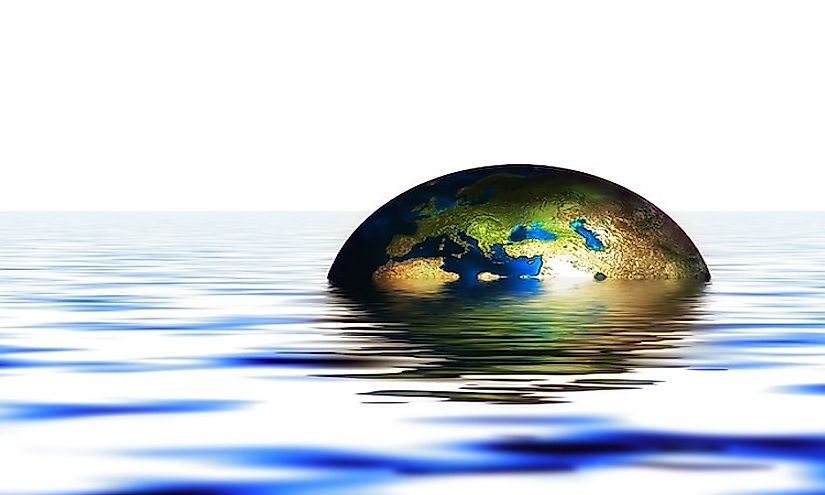Tracing The Origins Of Water On The Blue Planet

Water is the most important substance on the planet Earth and possibly the most mysterious. Water is so plentiful in the land that the Earth is referred to as the blue planet. However, the origin of water on the blue planet remains a question that many are seeking answers to. The mystery of water does not end with its origin. Water acts almost like other substances on the planet Earth. It can shift its shape and assume a solid, liquid, or gaseous form under different temperatures and pressure. Life on Earth can never exist without water. Water covers about 70% of the Earth’s surface and is either salty or fresh. Water on Earth is confined underground or on the surface in lakes, rivers, streams, oceans, and dams among other water bodies.
Origin Of Water: A Lively Scientific Debate
The origin of water on the blue planet is subject to a lively scientific debate around the world. The origin of water is not clearly understood. It remains an intricate story stretching back to billion years to the Big Bang theory. There exist numerous and less mutually compatible theories as to how water may have found its way into the Earth’s surface in large quantity to form the ocean and other water bodies. Several studies push back the origin of water on planet Earth to about 4.5 billion years when the inner world and the solar system were still in the process of formation. Some studies have suggested that the planet was formed under dry conditions, with high energy impact which created a heated surface of the newly formed Earth with water coming much later. Other studies have also suggested that the molecules of water that were present during the formation of the Earth may have also been evaporated with the present waters coming much later. However, no one is certain of the exact time of the formation of the Earth’s water.
Possible Sources Of Earth’s Water
Water is believed to have originated from the extraplanetary sources including the water-rich meteoroids such as comets and trans-Neptune objects from the outer reaches of an asteroid belt. These objects are believed to have collided with the Earth thus bringing water into the world’s oceans. The measure of hydrogen isotopes deuterium in water point to the asteroids since a similar percentage of impurities of carbon chloride was found in the ocean. The large planetesimals which were heated by the decay of aluminum isotopes may have made the water to come to the surface. The origin of water from comets is likely to be true. However, what is unclear is whether the comets are a representative of the comets of the Kuiper Belt. The largest part of the Earth’s water comes from protoplanet according to Alessandro Morbidell. These protoplanets are formed on the outer asteroid belt that is plunged towards the Earth's surface.
The measurement of the chemical composition of moon rock recently suggested that the Earth was formed with its water already existing. The samples carried by Apollo 15 and 17 missions found traces of deuterium-to-oxygen ratio which resembled the isotopic ratio in carbonaceous chloride. That ratio is similar to the one found in the Earth’s water suggesting a common source of water for both the Earth and the moon. The findings support the theory of the movement of Jupiter into the inner solar system temporarily which may have caused some water bodies to fall inwards and became the raw material for the formation of the Earth and its neighbors.
Internal Sources Of Water
Other studies indicate that water stored in hydrated minerals of Earth’s rocks may have leaked gradually to form a portion of the Earth’s water. Also, an amount of water may have been in contained in the material that formed the Earth and escaped the Earth’s gravity during its formation. Some terrestrial water may have had their origin from biochemical reactions during the Great Oxygenation Event through the processes such as photosynthesis











